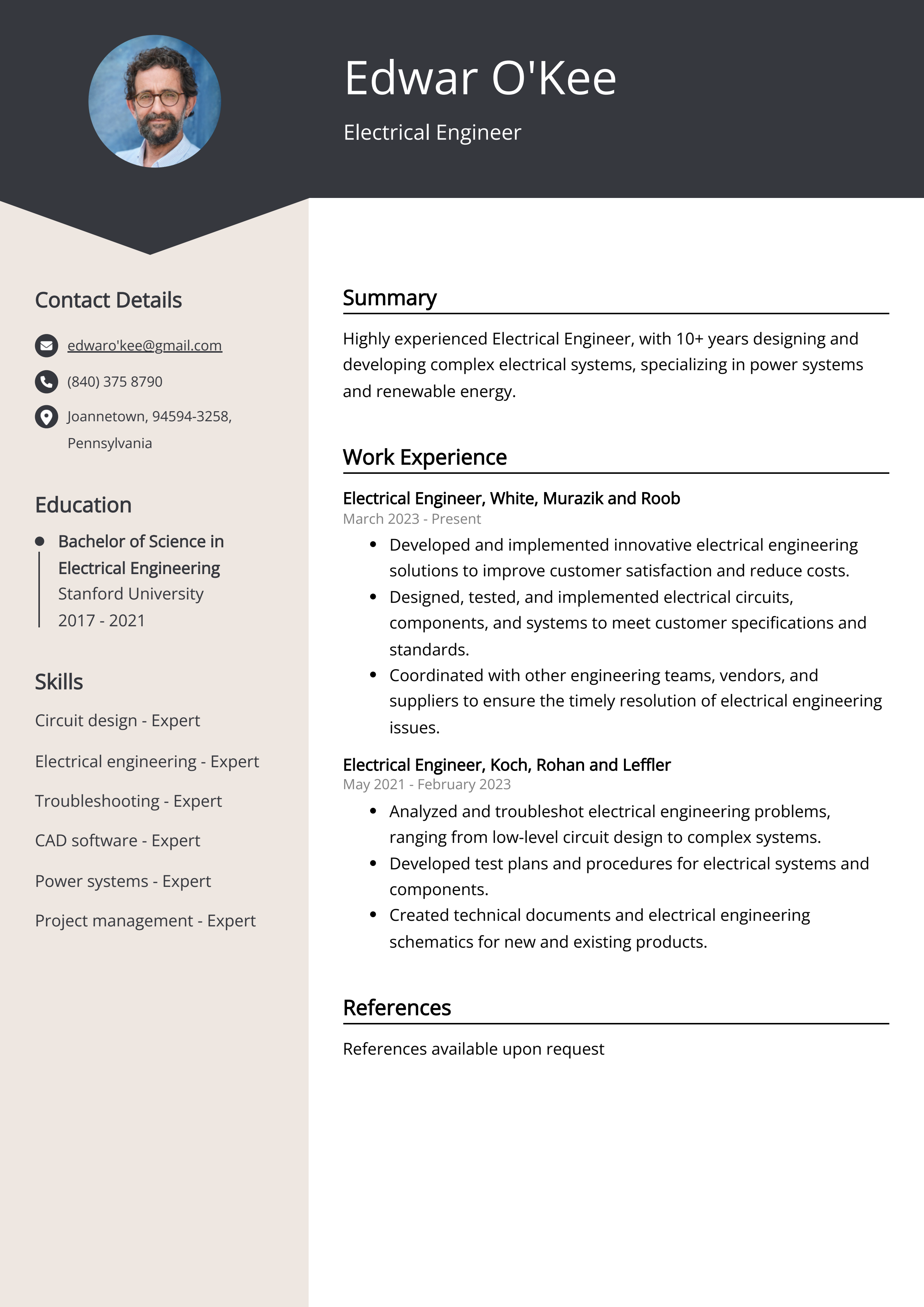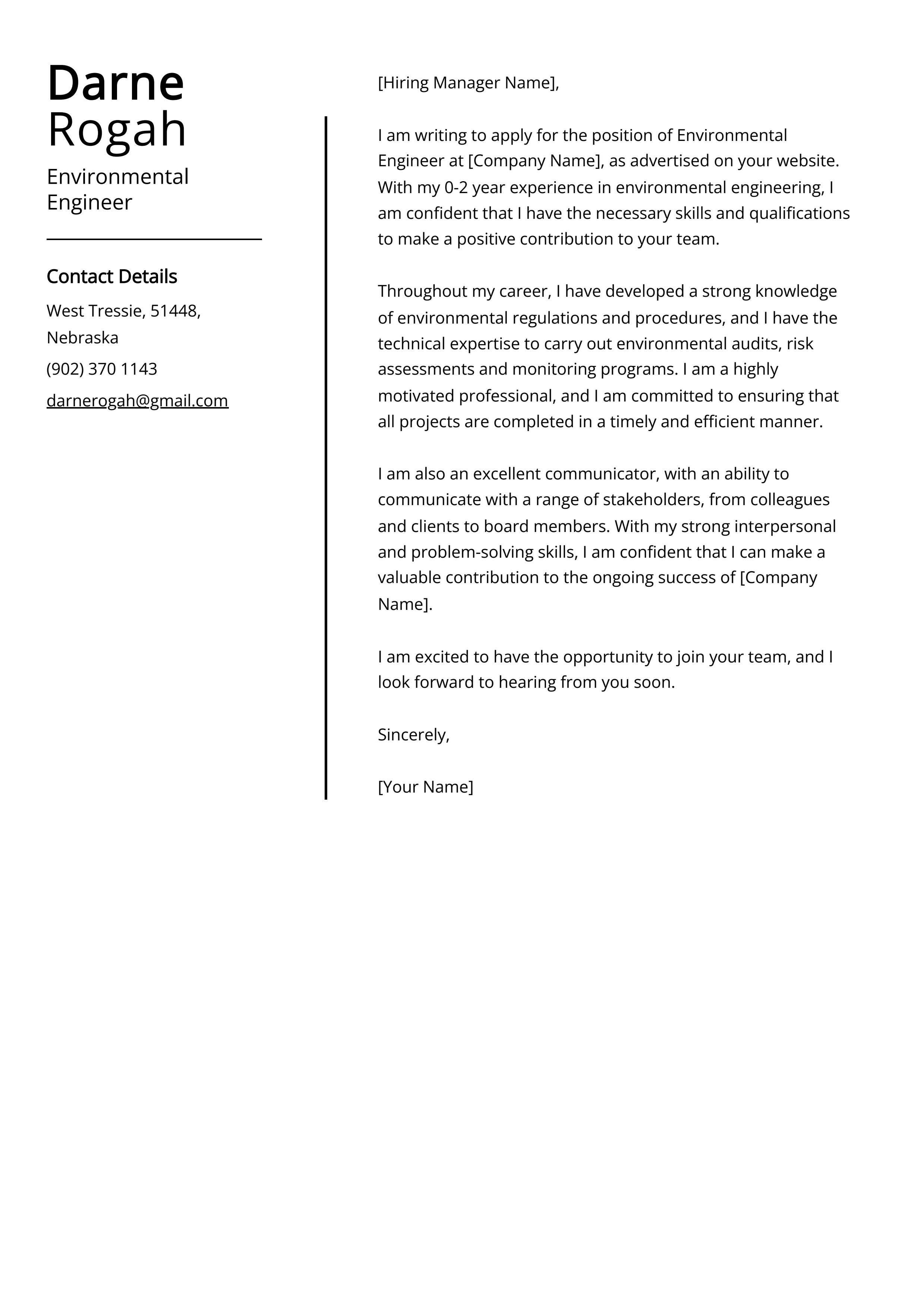It typically takes four to five years to become an electrical engineer. This timeframe involves completing a bachelor’s degree program in electrical engineering.
Embarking on a career in electrical engineering requires a significant investment in education. Prospective engineers enroll in a bachelor’s degree program, which lays the foundational knowledge in math, physics, circuitry, and various electrical engineering principles. These programs are designed to equip students with critical thinking skills and technical acumen necessary for success in the field.
Acquiring an electrical engineering degree is more than classroom learning; it involves hands-on projects, labs, and potentially internships, to prepare graduates for the practical challenges they’ll face in the workforce. Completing the degree signifies the primary hurdle surpassed on the journey to becoming a licensed electrical engineer, ready to contribute to technological advancement and innovation.

Credit: www.science.org
The Journey To Becoming An Electrical Engineer
Preparation During High School Years
High school students eager to pursue electrical engineering should focus on excelling in specific subjects. Maths and science are the foundation. Developing a strong understanding in these fields is crucial. Here are key strategies:- Enroll in advanced math courses – including algebra, calculus, and geometry.
- Excel in physics and chemistry to build a solid science base.
- Participate in science fairs and clubs to apply learning practically.
- Utilize online resources to deepen understanding and skills.
Setting The Foundation With A Bachelor’s Degree
Securing a Bachelor’s degree in Electrical Engineering is the essential next step. Typically spanning four years, the degree aligns theoretical knowledge with practical application. Noteworthy highlights include:| Year | Focus | Activities |
|---|---|---|
| 1st Year | Core Concepts | Labs and basics in circuits, digital systems. |
| 2nd Year | Intermediate Studies | More in-depth courses in electronics, mathematics. |
| 3rd Year | Advanced Topics | Design classes, specialized electives, team projects. |
| 4th Year | Professional Preparation | Capstone project, internships, career planning. |

Credit: resumaker.ai
Educational Roadmap: Undergraduate Studies
Duration Of Bachelor’s Programs In Electrical Engineering
A typical bachelor’s degree in electrical engineering spans four years. This timeline can vary based on the institution or if a student chooses a part-time schedule.- Year 1 & 2: General education and foundational engineering coursework
- Year 3 & 4: Advanced engineering topics and electives
Key Coursework And Internship Opportunities
The curriculum covers a wide range of subjects. Students must navigate through core coursework and practical experiences.| Core Subjects | Elective Options | Internship Benefits |
|---|---|---|
|
|
|
Mastering The Field: The Value Of Graduate Education
Considering A Master’s Degree Timeline
A master’s degree typically spans 1-2 years after a four-year bachelor’s program. But, timelines can shift based on several factors:- Full-time or part-time studies: Full-timers finish faster.
- Thesis or non-thesis options: Candidates can choose a heavy research focus or more coursework.
- Online or on-campus: Online programs often offer more flexibility.
Specializations And Advanced Research
Choosing a specialization marks a critical step in an engineer’s education. Options include:- Power Systems
- Control Systems
- Microelectronics
- Signal Processing
- Telecommunications
Navigating The Certification Process
Licensing As A Professional Engineer
Gaining a license marks a significant milestone for any engineer. The journey begins after earning a bachelor’s degree. Eligible candidates then must pass the Fundamentals of Engineering (FE) exam. This solidifies their engineering fundamentals. Subsequently, candidates gain work experience under a licensed PE. This typically spans four years. Following this, one qualifies to sit for the Principles and Practice of Engineering (PE) exam. Licensing requirements vary by state, but each aims to uphold exemplary standards of safety and expertise. Once licensed, electrical engineers can sign off on projects and take responsible charge of work.Continued Education And Certifications
The voyage does not end with licensing. Technological landscapes evolve swiftly. Effective electrical engineers stay abreast through continued education and certifications. These can include advanced degrees or specialized courses.- Professional Development Hours (PDH) are a requirement in most states to maintain a PE license.
- Certificates like Certified Energy Manager (CEM) or National Electrical Code (NEC) expertise are beneficial.
- Master’s degrees can open doors to management or specialized technical positions.
Real-world Experience: From Classroom To Career
Entry-level Positions And Career Progression
Entry-level jobs are the first step on the career ladder for electrical engineers. Often, these positions involve:- Assisting senior engineers
- Developing basic circuit designs
- Testing electronic components
| Years of Experience | Typical Positions |
|---|---|
| 0-2 years | Junior Electrical Engineer |
| 3-5 years | Electrical Engineer |
| 6+ years | Senior Electrical Engineer |
The Impact Of Internships And Co-ops On Employability
Internships and co-operative education (co-ops) play crucial roles. They bridge the gap between academics and real-world scenarios. Participating students gain:- Valuable industry connections
- Relevant experience before graduation
- Insight into daily tasks of an engineer
- Improved job prospects
- Potential for higher starting salaries
- Smaller learning curve once hired
Workplace Dynamics And Job Market Trends
When considering a career as an electrical engineer, potential aspirants often gauge the landscape of work environments and job prospects. This insightful dive into Workplace Dynamics and Job Market Trends will shed light on what to expect in various industries and how the future looks for electrical engineers.
Industry Sectors Hiring Electrical Engineers
A wide range of industries rely on the expertise of electrical engineers. Here is a snapshot:- Manufacturing – Craft machines and control systems.
- Technology Firms – Innovate software and hardware solutions.
- Power Generation – Design and manage sustainable energy solutions.
- Automotive – Develop electronic components for vehicles.
- Government Agencies – Improve public infrastructure and defense technologies.
Forecasting The Demand For Electrical Engineers
Future job outlooks paint a promising picture. Here are key insights:| Year | Job Growth Prediction |
|---|---|
| 2025 | Technological advancements spike demand. |
| 2030 | Shift to renewable energy sources fuels jobs. |
Specialized Areas Of Focus Within Electrical Engineering
Emerging Technologies And Their Influence On Education
Novel technologies change learning landscapes. Electrical engineering students must now understand areas like renewable energy and smart grids. Robotics, artificial intelligence, and the Internet of Things (IoT) are pivotal too. These fields demand knowledge of both hardware and software. Universities respond with updated modules and advanced labs. The following list outlines emerging fields and their educational impacts:- Renewable Energy Systems: Courses in solar, wind, and geothermal technologies.
- AI and Machine Learning: Emphasis on data-driven solutions and automation.
- IoT and Connected Devices: Focus on networked technology and cybersecurity.
Choosing A Sub-discipline And Its Effect On Duration
Your sub-discipline choice affects your journey length. Picking a field can add time for extra courses or certifications. For instance, a future control systems engineer might need additional study in automation. Listed below are some sub-disciplines and how they might extend the typical four-year plan.| Sub-Discipline | Additional Time | Reason |
|---|---|---|
| Power Engineering | 6-12 months | Specialized courses and internships |
| Telecommunications | 3-6 months | Networking and signal processing classes |
| Robotics & Control Systems | 6-12 months | Laboratories and project-based learning |
The Role Of Professional Societies In Career Development
Networking And Professional Development Events
Networking events shape careers. They connect aspiring engineers with experienced professionals. Attendees share knowledge and find mentors. This direct access can lead to job opportunities. Professional development events like workshops and conferences keep skills sharp and up-to-date.- Conferences: Gain insights into industry trends and innovations.
- Seminars: Improve specific skill sets with targeted training.
- Webinars: Conveniently participate in learning sessions online.
Resources And Support From Engineering Associations
Engineering associations provide a wealth of resources. They support members through every career stage. These include access to:- Publications: Stay informed about the latest research and technology.
- Job Boards: Discover openings tailored for electrical engineers.
- Continuing Education: Pursue additional certifications and courses.
Furthering Abilities Through Workshops And Seminars
Keeping Skills Fresh: Lifelong Learning In Engineering
The world of engineering evolves rapidly. For professionals, staying updated is not optional—it’s essential. Lifelong learning is a must for success. Workshops and seminars offer platforms for engineers to learn about cutting-edge advancements. Engineers can network with peers, share ideas, and discover new tools and technologies. The benefits of these learning experiences are vast:- Understanding emerging industry trends
- Gaining practical know-how on latest equipment
- Improving problem-solving techniques
Certification Courses Post-graduation
After getting a degree, certification courses further enhance expertise. These courses are often designed by industry leaders. They focus on specialized areas within electrical engineering. Some popular certifications include:| Certification | Description | Duration |
|---|---|---|
| Professional Engineer (PE) | A license for higher engineering roles | Varies by state |
| Certified Energy Manager (CEM) | Focuses on energy efficiency and conservation | About 6 months |
| Certified Control Systems Technician (CCST) | Emphasizes automation and control systems | Several months to 3 years |
Balancing Tech Skills With Soft Skills
Communication And Leadership Training For Engineers
Engineering is not just about calculations and circuits. Good communication makes great engineers. Students must learn to express complex ideas clearly. Schools are now embedding communication skills in their curriculum. This broadens an engineer’s effectiveness.- Presenting technical information to non-experts
- Writing clear and concise reports
- Communicating project goals within a team
- Understanding different leadership styles
- Learning to manage time and resources
- Knowing how to motivate and inspire a team
Collaboration And Teamwork In A Technical Environment
In the real world, engineers work with others. They are part of a bigger team. Students must learn to collaborate. Team projects and lab work in school are starting points. Effective teams combine diverse expertise. Skills mix for the best outcomes.| Team Role | Key Skill |
|---|---|
| Project Manager | Leadership, Organization |
| Design Engineer | Creativity, Attention to Detail |
| Quality Assurance | Analysis, Problem-Solving |
| Field Engineer | Adaptability, Communication |
Global Opportunities In Electrical Engineering
Working Internally: Considerations And Preparation
Launching a career internationally requires strategic planning. Before aiming to work abroad, electrical engineers must familiarize themselves with several key aspects:- Work permits and visas: Each country has different requirements. Start the application process early.
- Global certification: Certain certifications may not transfer internationally. Check credential recognition before moving.
- Language proficiency: While English is often used in engineering, knowing the local language can be essential.
- Local regulations and codes: Engineering practices vary. Understanding local standards ensures compliance.
Cross-cultural Competencies For Engineers
To succeed in diverse environments, engineers need to develop cross-cultural competencies. These skills make working across borders smoother:| Skill | Importance |
|---|---|
| Communication | Clear idea exchange in multicultural teams |
| Adaptability | Quick adjustment to new challenges |
| Collaboration | Successful joint ventures with global teams |
| Sensitivity | Respect for cultural differences |
Impact Of Research And Development In Career Length
Investing Time In Innovation And Patents
R&D is not just about expanding knowledge. It’s about application. Electrical engineers dedicating time to innovation may work on creating new products or processes. This often leads to filing patents—a pivotal accomplishment in an engineer’s career. The patent process can be lengthy but rewarding. It demonstrates expertise and contributes to a significant standing within the industry. Notable achievements, such as patents, may require additional years in a career. This adds to the overall time from the start of studies to establishing a noteworthy professional footprint. Here are the steps typically involved in patenting an innovation:- Conducting extensive research
- Development of a prototype or process
- Filing a patent application
- Undergoing a patent review
- Obtaining patent approval
R&d Roles And The Path To Senior Expertise
Electrical engineers who dive into R&D may find themselves in specialized roles. These positions, often found in high-tech labs and industry-leading firms, demand a high level of skill and knowledge. Commitment to R&D accelerates cultivation of expertise, pushing the boundaries of electrical engineering and technology. The typical career progression for an R&D engineer might look like this:- Entry-level research technician
- Research engineer
- Senior research engineer
- Lead project engineer
- Principal engineer or R&D manager
Financial Considerations Of An Engineering Education
Costs Of Undergraduate Vs. Graduate Degrees
Undergraduate and graduate degrees differ in costs. An undergraduate degree typically spans four years. It includes tuition, books, and living expenses. Graduate degrees, which further specialize your expertise, often come with higher tuition fees. Consider the following breakdown:| Education Level | Tuition | Books and Supplies | Living Expenses |
|---|---|---|---|
| Undergraduate | $10,000 – $50,000/yr | $1,000 – $2,000/yr | $8,000 – $15,000/yr |
| Graduate | $15,000 – $60,000/yr | $500 – $1,500/yr | $10,000 – $20,000/yr |
Scholarships, Grants, And Financial Aid Options
Engineering students have access to various financial support options. Scholarships, grants, and financial aid can significantly reduce out-of-pocket expenses. Review the options below:- Scholarships: Merit-based, need-based, or for specific fields.
- Grants: Need-based financial gifts.
- Loans: Money borrowed, to be repaid with interest.
- Work-Study Programs: Part-time work to earn money for school.
Online Degrees And Distance Learning
Flexibility And Time Management In Online Programs
Online programs shine when it comes to flexibility. With most courses allowing students to access material at any time, the need to reorganize one’s entire life for education decreases significantly. Prioritizing tasks becomes crucial. Let’s explore the highlights of these self-paced programs.- Study Anytime: Access lectures and resources 24/7.
- Set Your Pace: Tailor the pace to meet your learning style.
- Balance: Juggle work, life, and study effectively.
Comparing Online And Traditional Education Outcomes
It’s essential to assess the value of online programs against traditional in-person education. Concerns over recognition of online degrees have dwindled as many accredited institutions now offer these programs. Let’s delve into the effectiveness of these modern educational pathways.| Factor | Online Education | Traditional Education |
|---|---|---|
| Duration | Typically adjustable | Fixed semesters |
| Access to Material | Anytime, anywhere | During scheduled classes |
| Interactivity | Forums, emails, virtual meetings | Face-to-face discussions |
| Outcome | Comparable to traditional degrees if the program is accredited | Well-recognized, but less flexible |
Evaluation Of Time Investment Against Career Outcomes
Long-term Career Growth And Earning Potential
The journey towards becoming an electrical engineer can be a long one, but it often leads to significant long-term growth in the field. With the foundation of a Bachelor’s degree, which typically takes four to five years, engineers can then consider Masters or Doctoral programs. These advanced degrees can take an additional two to six years. As experience and education level increase, jobs often become more complex and financially rewarding. Here’s what one can expect:- Job security: Electrical engineering is a field with high demand.
- Promotion opportunities: With time, engineers can move into senior or managerial roles.
- Specialization areas: Options to specialize increase earning potential.
Return On Investment For Electrical Engineering Degrees
While the cost of an electrical engineering degree can be substantial, the return on investment (ROI) is a critical factor to consider. The table below outlines the average costs versus the potential earnings after graduation.| Education Level | Average Cost | Starting Salary | Mid-Career Salary |
|---|---|---|---|
| Bachelor’s | $40,000 – $100,000 | $60,000+ | $100,000+ |
| Master’s/PhD | $20,000 – $50,000 per year | $80,000+ | $120,000+ |

Credit: resumaker.ai
Frequently Asked Questions For How Long Does It Take To Become An Electrical Engineer
How Long Does It Take To Complete An Electrical Engineering Degree?
An electrical engineering degree typically takes four years to complete for a full-time student pursuing a bachelor’s. Accelerated programs and part-time study options may alter the duration.
How Many Years Is Electrical Engineering?
Electrical engineering typically requires four years to complete for a bachelor’s degree. Advanced degrees, like a master’s, may take an additional 1-2 years.
Is Electrical Engineering A Hard Degree?
Electrical engineering can be challenging, requiring strong maths and physics skills. Intensive lab work and theoretical studies demand dedication and time management. Success depends on the student’s commitment and interest in the field.
Is It Worth It To Become An Electrical Engineer?
Becoming an electrical engineer can be rewarding, offering diverse job opportunities, competitive salaries, and technological innovation involvement. It’s an investment in a stable and growing career path.
What Does Electrical Engineering Entail?
Electrical engineering focuses on designing, testing, and developing electrical equipment, such as motors, radar systems, or power generation equipment.
Conclusion
Embarking on the path to electrical engineering demands dedication and time. Typically, achieving the necessary degree takes about four years, yet mastering the field is an ongoing journey. With commitment, continual learning, and practical experience, you can unlock a rewarding career as an electrical engineer.
Keep striving, and success will follow.







